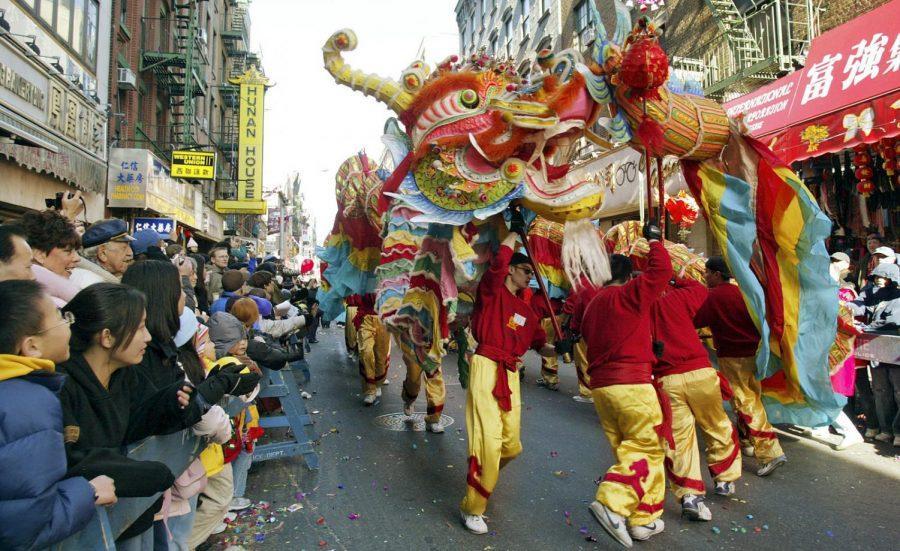The rainbow and glitter sparklers, the ornate pig floats and the red everywhere signify the start of the weeks-long celebration of Chinese New Year. Also known as the Spring Festival or Lunar New Year, the holiday fell on Feb. 5 this year, beginning the Year of the Pig.
Celebrations last for weeks — in New York, there’s the parade in Chinatown, a Chinese New Year Spectacular at Carnegie Hall and various other museum exhibitions and cultural activities across the five boroughs.
CAS junior and Taiwanese American Amanda Hu went home to New Jersey to celebrate the holiday.
“Every year my family has a big dinner with all the traditional dishes, and we always get red envelopes,” Hu said. “This year we did exactly that.”
For those who don’t go home for the holiday, there are opportunities at NYU to find a small taste of home. NYU’s Chinese Mei Society held their annual Lunar New Year celebration at the start of the spring semester.
“We pride ourselves on good food,” Stern senior Richard Zhang and Steinhardt senior Grace Yan, co-presidents of the society, told WSN over email. “We usually have traditional Chinese New Year foods like noodles and dumplings brought by our club from Chinatown to provide the student community a little taste of home or of a new culture. We then play games and talk a little about the cultural aspects of Chinese New Year — we aim to provide a fun environment where people of all backgrounds can learn about and enjoy Chinese culture.”
Stern junior Lilian Chung, the president of NYU’s Taiwanese American Student Society, said her club also hosts a similar Chinese New Year event.
“We play games related to the holiday — tongue twisters and calligraphy related to the new year — and provide food that is usually eaten to celebrate the new year, like dumplings,” she said.
Chung said that while these clubs host annual New Year celebrations, some may feel that the intimacy of family gatherings that define the holiday is lost.
“For those who have grown up celebrating Chinese New Year every year with their families, it’s difficult to be away from home,” Chung said. “Since there are a lot of people at these events, there’s less of a personal connection to all the other people.”
Many Lunar New Year traditions revolve around the home and family, such as cleaning, decorating, cooking together and visiting family members and friends. Tandon junior Sherry Fu explained how her experiences differed drastically from New York City to home.
“It’s the longest holiday in China, and people get to reunite with their families, so everyone appears happy all the time — there are decorations on the streets and in stores, which creates a festive atmosphere everywhere you go,” Fu said. “If I were in China during the New Year, my family and I would go back to my grandparents’ houses to have a New Year Eve dinner with them and watch the Chinese New Year Gala together. This year I did nothing because I had an entire day of class.”
Originally from Chengdu, CAS junior Mengxin Xu feels that being at college mitigates the Chinese New Year atmosphere.
“There is a lot more to do when you’re at home with your relatives,” Xu said. “This year my Chinese friends and I all cooked a dinner together and made dumplings, but in China, on the day of New Year’s Eve all my family members get together to have dinner and see fireworks, and I’d usually go to my ancestors’ graves with my grandpa the next morning.”
While students can still enjoy festivities close to campus and celebrate with friends, Fu says nothing is the same as spending the holiday at home.
“The significance of Chinese New Year is to go home,” Fu said. “It’s to unite with your families and spend time with each other. No matter how similar the decorations or parades are in the United States, it’s still not home.”
A version of this article appears in the Monday, Feb. 19, 2019, print version. Email Kylie Kirschner at [email protected].


























































































































































